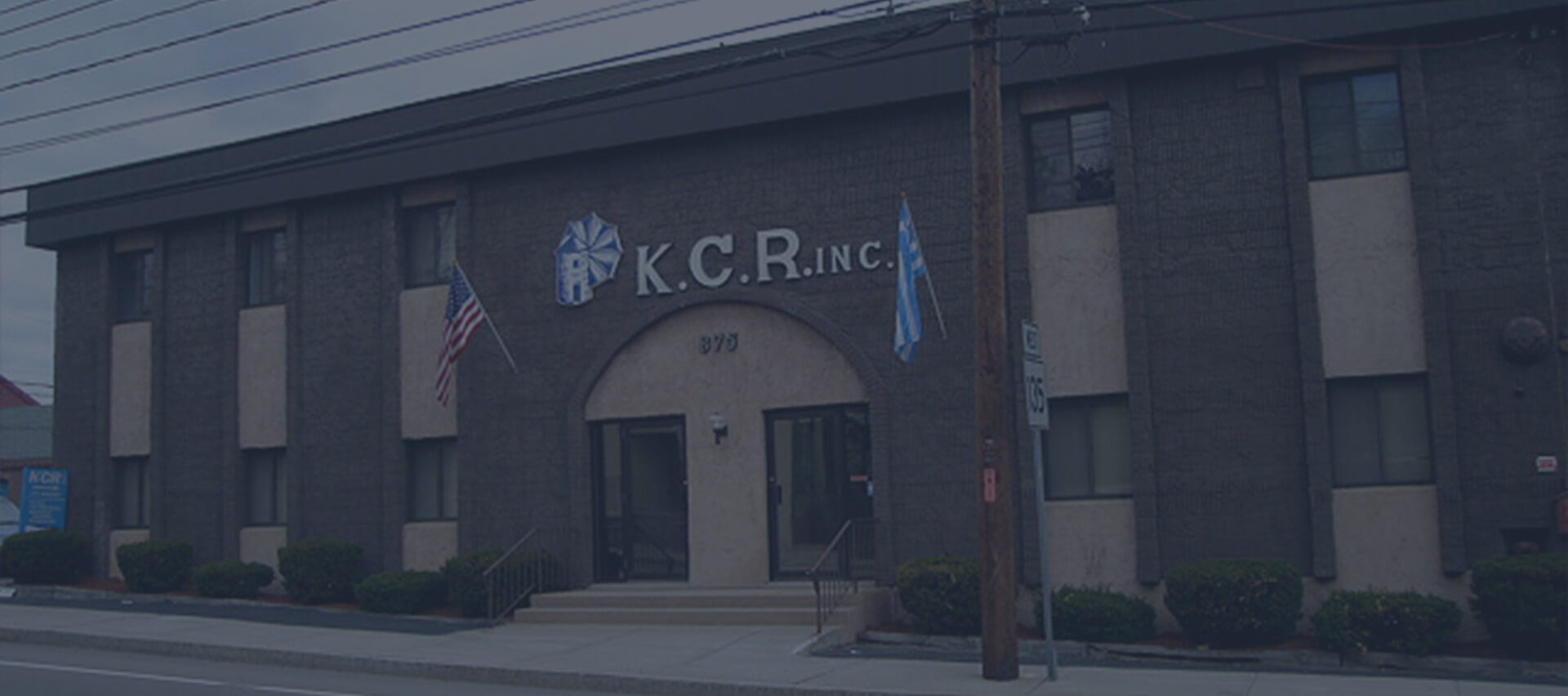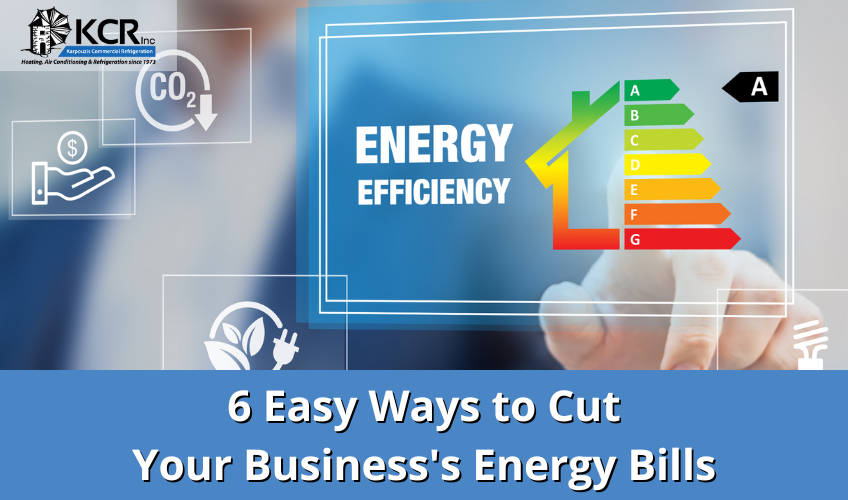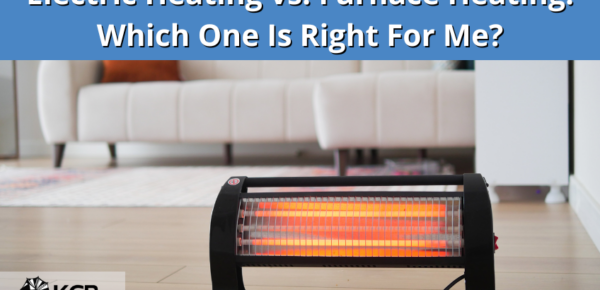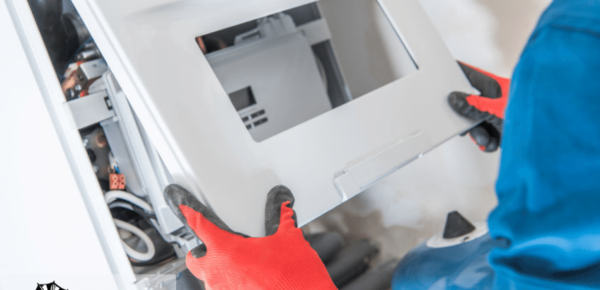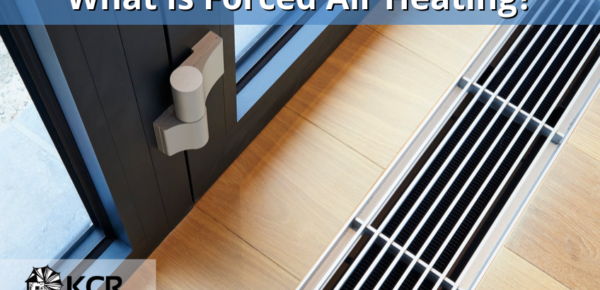6 Easy Ways to Cut Your Business’s Energy Bills
Running a company’s commercial HVAC can be expensive, and extremely costly energy bills are the last thing any business owner needs. But when the freezing weather of the Massachusetts winter rolls in, it’s easy to let your commercial heating costs get out of hand inadvertently. After all, keeping your employees and clients warm is necessary to continue running a successful operation.
Fortunately, there are measures you can take to keep your business’s energy bills in check without sacrificing anyone’s comfort.
What We’ll Cover:
- Scheduling an energy audit
- Sealing air leaks
- Upgrading commercial HVAC equipment
- Applying for energy-efficiency tax credits
- Commercial HVAC maintenance
- Clearing vents and air ducts
- Key takeaways
1) Schedule an Energy Audit
If you’re looking to lower your company’s energy costs, scheduling an energy audit is an excellent first step. During this process, an expert auditor will examine how your business operates and identify any areas in which you might be wasting energy. They’ll look closely at your commercial HVAC systems to ensure you get the best efficiency possible from your industrial heating and cooling units.
They’ll also look for other sources of wasted energy, such as air leaks, poor insulation, and inefficient habits. Once the energy professional has a clear picture of your business, they’ll provide specific recommendations for improving commercial heating repair.
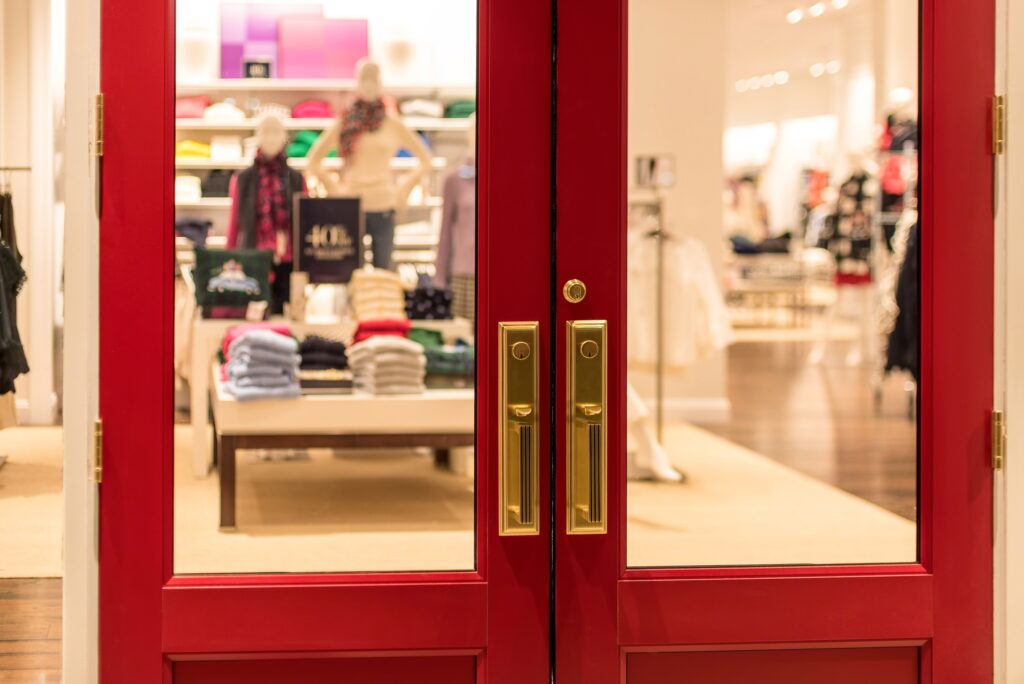
2) Locate and Seal Air Leaks
If your commercial facility harbors air leaks, they can collectively become a major source of heat loss during the winter. As a result, your commercial heating system will need to work much harder to do its job, which directly leads to wasted energy.
Even small gaps around your building can allow warmth to escape. Leaks commonly form around the edges of windows, doorways, and garage doors. Identifying and thoroughly sealing these leaks can significantly reduce your business’s monthly energy costs.

3) Upgrade Your Commercial HVAC Equipment
One common cause of wasted energy in commercial facilities is outdated HVAC equipment. For example, an aging refrigeration system controlling the climate of your building could be operating with poor energy efficiency.
By upgrading to a new, high-efficiency heat pump, you can not only start saving money on energy bills immediately but also improve the comfort of your facility and reduce the likelihood of equipment problems. Plus, systems like forced air heating tend to last longer than any other type of commercial heating system.
Upgrading to a modern thermostat could be a beneficial decision as well. These days, smart thermostats have various functions to improve efficiency and comfort. They can monitor your habits, provide useful data about your building’s energy usage, and ensure that your heating and cooling systems only run when necessary.
Do you need a new heating system for your warehouse, store, or office?
4) Apply for Energy-Efficiency Tax Credits
Did you know that you could be eligible for significant tax credits by upgrading to high-efficiency commercial HVAC systems? For instance, in Massachusetts, upgrading to an energy-efficient heat pump or forced air heating system for your commercial property can lead to significant savings through programs like Mass SAVE. These rebates are designed to encourage businesses to improve their energy efficiency, offering financial incentives for installations that meet specific energy-saving criteria.
Additionally, achieving Energy Star certification for your heating and cooling systems can provide further financial benefits. Products with Energy Star certification meet strict energy efficiency guidelines set by the U.S. Environmental Protection Agency and the Department of Energy. By installing Energy Star-certified HVAC products, businesses can enhance their eligibility for additional tax credits and rebates available at the federal level. These incentives are not only a boon for reducing initial upgrade costs but also help in long-term savings on operational expenses.
Applying for these tax credits and rebates is a straightforward process, often facilitated by your local or state government’s energy programs. Businesses are encouraged to consult with energy experts or certified installers who can ensure that their new systems comply with the necessary standards to qualify for these economic incentives.
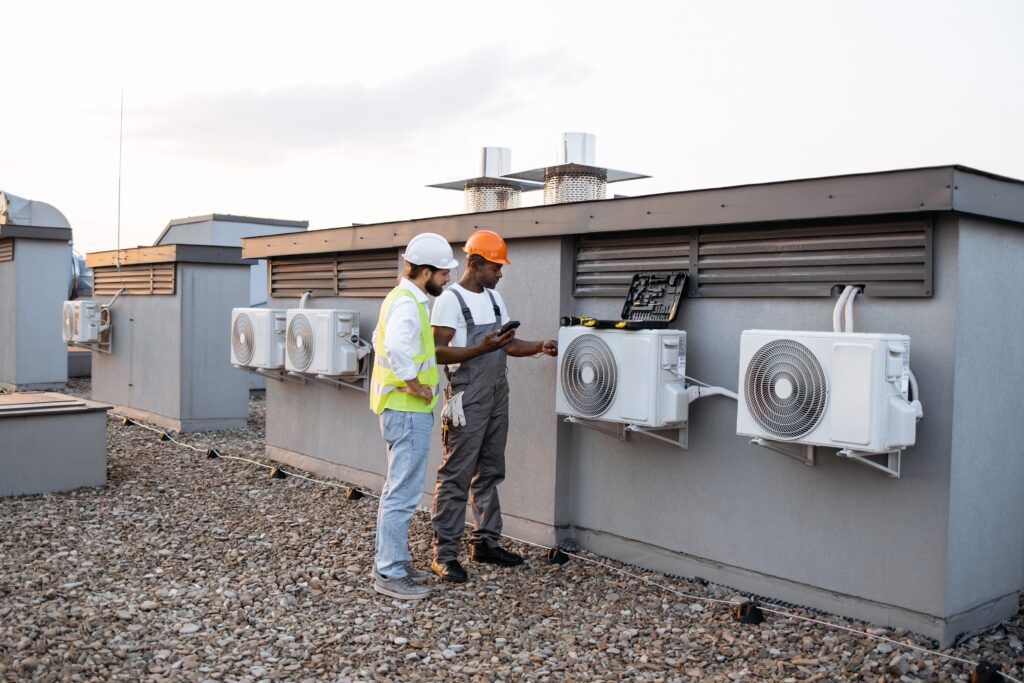
5) Keep Up With Commercial HVAC Maintenance
Few things are as important as maintaining your HVAC system to improve its energy efficiency. No matter what commercial HVAC system your business uses, you must schedule professional tune-ups yearly to keep it running smoothly and efficiently.
During these maintenance visits, your hired technicians thoroughly inspect your industrial heating and cooling appliances. They’ll look for issues that could hamper efficiency and warning signs of future problems. Commercial HVAC maintenance is affordable, yet it can save your company significant money in the long run.
In addition to scheduling professional heating repair, it’s important to replace the HVAC air filters regularly. When heating and cooling units run regularly to keep a commercial facility comfortable, the air filters tend to catch many airborne contaminants. If you don’t switch out the air filters often enough, they can become excessively dirty or even clogged.
Once that happens, the efficiency of the HVAC system declines significantly. Plus, its performance and health are likely to worsen as well. Ideally, it would be best to replace your commercial HVAC filters at least once every couple of months to maximize performance and energy efficiency.
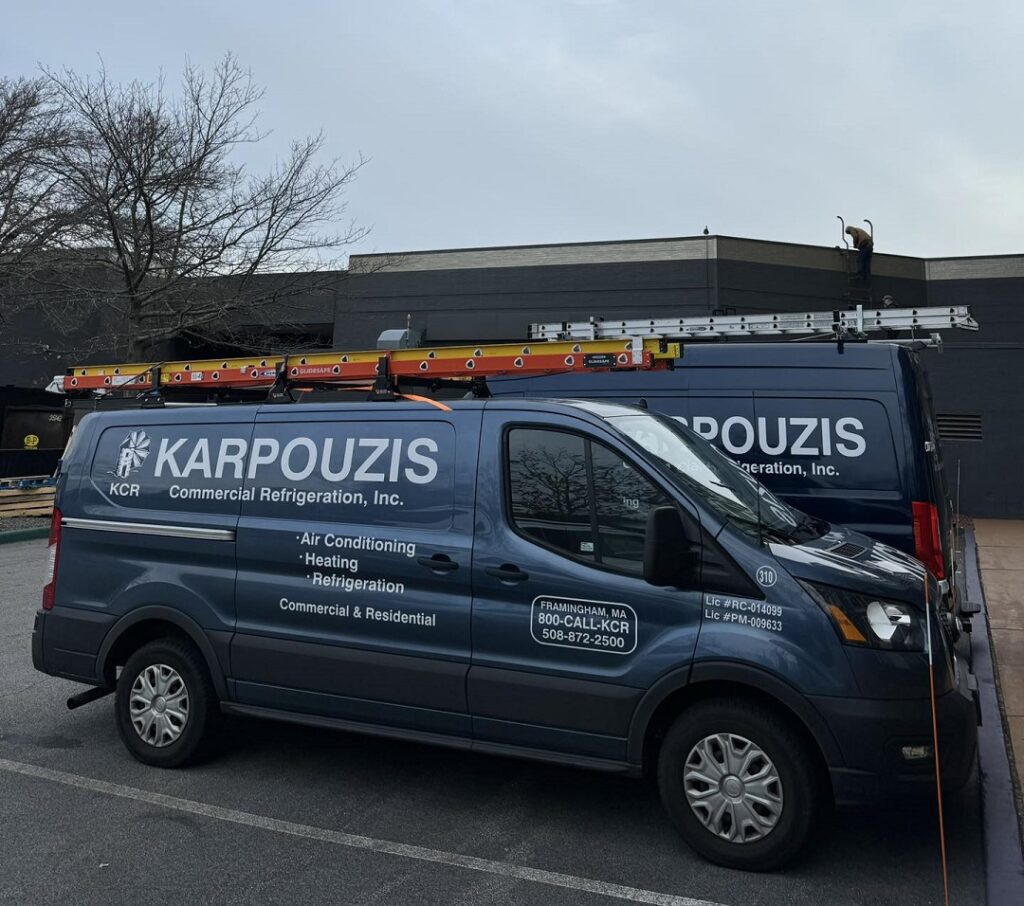
6) Keep Air Ducts and Vents Clear
For a commercial HVAC system to operate efficiently, it needs clear pathways for distributing hot and cool air. The air ducts and vents around the building serve as those pathways, and if they become dirty or otherwise obstructed, they can waste a lot of energy. Every few weeks, it’s important to check all of the registers around your business and ensure that nothing is blocking their airflow. Forced air heating requires this level of maintenance as well.
Ideally, you should remove the vent covers and use a vacuum cleaner’s extension hose to remove the dust, dirt, and debris inside each vent. You can hire local contractors to clean the ductwork thoroughly. This task should be completed every couple of years; doing so will improve your business’s efficiency and boost the health and overall performance of your commercial heating and cooling units.
Available for 24/7 Emergency Heater Repair
Key Takeaways
Ultimately, there’s no reason to accept poor energy efficiency as an inevitability for your business. Finding ways to save money for your company is always beneficial, and cutting energy costs is achievable.
By upgrading to modern heating equipment, maintaining your HVAC systems, and accurately evaluating your energy usage, you can make meaningful improvements and quickly notice significant savings. Eliminating sources of wasted energy around your facility also helps. You can also take advantage of any tax credits or rebates you may qualify for.
Massive changes from your commercial heating repair may not happen overnight, but your business can run at peak efficiency in the long run with a bit of proactivity and persistence. Your employees and customers will appreciate your investment in the long run.
THE COMMERCIAL HEATING SYSTEM EXPERTS
Your HVAC solutions should work for your exact needs. For nearly 50 years, KCR has provided homes and businesses with peace of mind and temperature control. We’re proud to serve our customers efficiently and flexibly in residential and commercial heating repair.
You can also follow us on Facebook for exciting clean heating updates and promotions!


